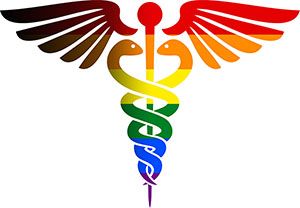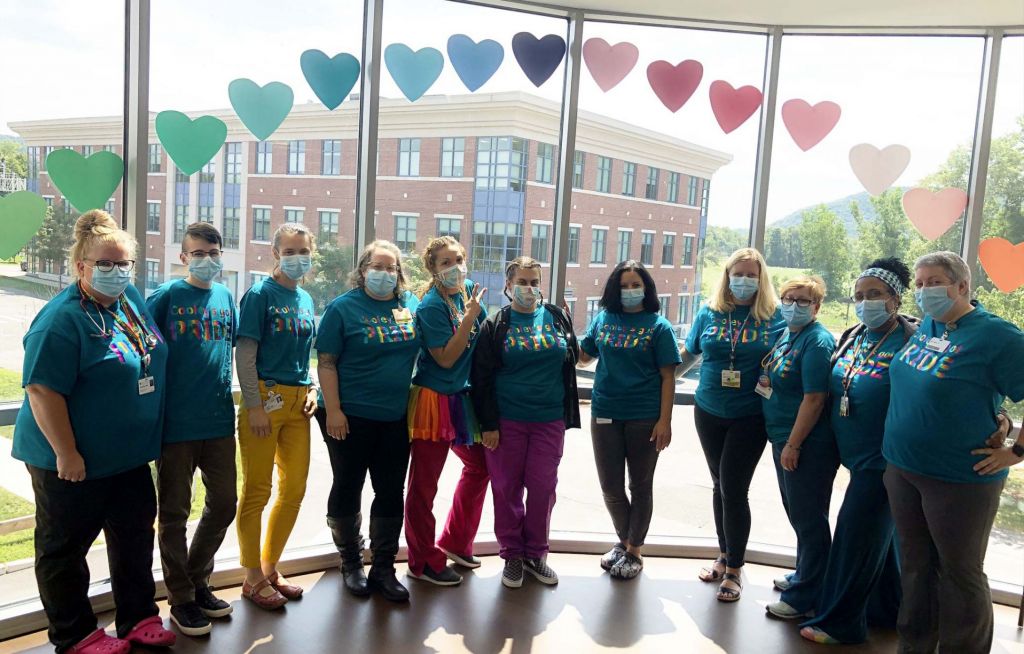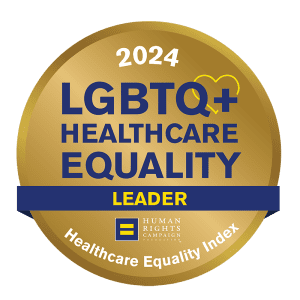
LGBTQ Care at Cooley Dickinson Hospital

Cooley Dickinson Hospital is committed to providing the highest standard of care for every individual in our community, at all points on the spectrums of gender and sexuality. We are dedicated to the inclusion of LGBTQ people in all aspects of our services–for patients, families and employees. We promote LGBTQ health equity and access to care through staff training, specialized services in transgender health, inclusive patient policies, and affirming benefits for our employees.
Resources
These external resources are not in any way affiliated with or endorsed by Cooley Dickinson Hospital unless otherwise noted, but links are provided as a community service to LGBTQ community members.
Massachusetts & National
- A Positive Place (HIV/AIDS service agency serving the Pioneer Valley – part of Cooley Dickinson Hospital)
- Oxbow Primary Care (a Cooley Dickinson practice with particular expertise in LGBTQ care)
- Community Action Pioneer Valley (Generation Q)
- Guidelines for the Primary and Gender-Affirming Care of Transgender and Gender Nonbinary People (UCSF)
- LGBTQ Health, Pap Smears and STI Prevention Information
- National LGBTQIA+ Health Education Center (A Program of The Fenway Institute)
- Out Now (LGBTQ Support Group for the Greater Springfield Area)
- Rainbow Elders (Franklin County)
- Trans Lifeline (Emotional and practical/logistical support for trans people in crisis)
- Transforming Parents (A peer support group for parents or caretakers of children who identify beyond the gender binary)
- The Trevor Project (Crisis Intervention/Suicide Prevention for LGBTQ Youth)
- UMass-Amherst Stonewall Center (LGBTQIA+ resource center)
New Hampshire
- TLC Family Resource Center / Rural Outright (LGBTQ Community Organization, Peer Support, and Family Services in Claremont, NH)
Vermont
- Out in the Open (LGBTQ Community Organization and Peer Support in Brattleboro, VT)
Upstate New York
- Hudson Valley LGBTQ Community Center (LGBTQ Community Organization and Peer Support in Kingston, NY)
- Pride Center of the Capitol Region (LGBTQ Community Organization and Peer Support in Albany, NY




